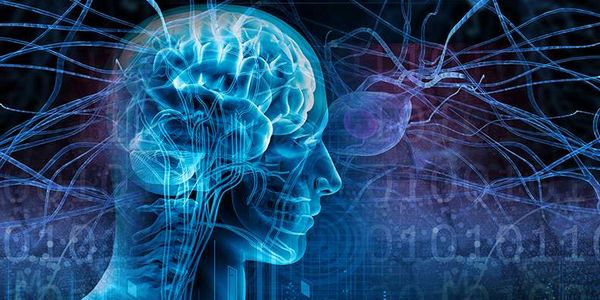Infarction of the brain-disease treatment. Symptoms and prevention of diseases of the brain Infarction

Infarction of brain (ischemic stroke) is the brain tissue damage due to acute cerebrovascular accident. Termination or obstruction of the blood proceeds to a division of the brain leads to violation of its functions. Ischemic stroke is accompanied by lot fluctuation of brain tissue (infarction of brain).
Infarction of the brain is the cause of
Infarction of the brain can be caused by insufficient blood supply to a particular piece of the brain due to reduction of cerebral blood flow, embolism, thrombosis, related to heart disease, vessels, blood.
The main risk factors of ischemic cerebral circulation include:
- hypertension;
- old or senile age;
- giperholesterinemiju;
- smoking;
- cerebral arteriosclerosis, precerebralnyh (the vertebral and carotid) arteries;
- Heart Disease (eg, myocardial infarction, atrial fibrillation);
- diabetes.
Symptoms of brain infarction
There are three main trait, evidence of acute violation of cerebral circulation:
- man can not right smile, corner of the lips can be omitted;
- the victim cannot speak properly, his speech it, ' speech was scrambled;
- weakness in the leg and arm on the side of the lesion.
Usually attack is a harbinger-ischemic attack. Signs of ischemic attack:
- sudden dizziness;
- speech disorder;
- varying gravity of motor functions in your leg or arm;
- severe headache;
- insensibility.
Infarction of the brain — Diagnostics
Research, necessary to diagnose disease:
- complete blood count;
- cholesterol blood plasma;
- urea, glucose, blood electrolytes;
- 12-channel electrocardiography;
- beskontrastnaja computed tomography of the brain.
Additional research:
cerebral angiography;
- Ultrasound duplex scanning;
- magnetic resonance angiography;
- Intra-Arterial digital subtrakcionnaja angiography;
- Transthoracic echo-cardiography;
- Magnetic resonance imaging.
Infarction of the brain — the kinds of diseases
On the formation rate of neurological deficits distinguish:
- transient ischemic attacks, characterized by Nidal neurological impairments and fully regress within 24 hours after the occurrence of;
- small stroke " – prolonged ischemic attack with reverse neurological defect (recovery of neurologic function requires 2 to 21 Nights);
- progressive ischemic stroke is the gradual development of foci and obshhemozgovyh symptoms for several days or hours with subsequent incomplete restoration of functions;
- completed (total) ischemic stroke is a mature brain infarction with incompletely regressing or stable deficit.
On the severity of the condition of patients:
- light gravity, When neurological symptoms slightly expressed, has regressed during the 3 weeks of illness;
- moderately-is characterized by the predominance of focal neurological symptoms, There are no disorders of consciousness;
- heavy stroke-characterized by expressed violations obshhemozgovye, rough focal neurological deficit, depression of consciousness.
Pathogenetic classification:
- aterotromboticheskij stroke;
- hemodynamic stroke;
- kardiojembolicheskij stroke;
- lakunarnyj stroke.
On localization of brain infarction:
- in the basin of the internal carotid artery;
- in the basin of the vertebrates, main arteries, their branches;
- in the basin of the Middle, front, the posterior cerebral arteries.
Infarction of the brain — the patient
When signs of ischemic stroke must be an urgent appeal for medical assistance.
Treatment of brain infarction
In the treatment of stroke secrete base and differentiated therapy.
Basic therapy of ischemic stroke is designed to maintain basic body functions and includes the maintenance of circulation through nootroponah drugs (piracetam) and other funds, ensuring adequate breathing, monitoring and correction vodno-elektrolitnogo balance, reducing brain swelling, Prevention and treatment of pneumonia.
Most often associated with ischemic stroke or embolism or thrombosis of cerebral arteries. In this case, apply the Thrombolysis, made vnutriarterialnym or intravenous Tissue plasminogen activator.
To improve the rheological properties of blood used hemodilution as intravenous infusions. Widely used vasoactive drugs (Vinpocetine, pentoxifylline, Calcium channel blockers), as well as gemodializaty, improve the supply of oxygen in the tissues.
In the reconstruction period shows the active motor, cognitive and speech rehabilitation. Rehabilitation activities start as soon as possible and systematically during the first 12 months after ischemic stroke.
Infarction of the brain — Complications
- infectious complications (infections of the urinary system, pneumonia, a bedsore, etc.);
- pulmonary thromboembolism;
- deep vein thrombosis area of tibia;
- swelling of the brain;
- cognitive impairment;
- voiding, bowel movement;
- epilepsy;
- movement disorders (bilateral, unilateral), severe weakness, paralysis;
- mental disorders (irritability, depression, etc.);
- pain syndrome.
Prophylaxis of infarction of brain
Prevention of ischemic stroke is to prevent, detection and timely treatment of the pathology of the cardiovascular system.
